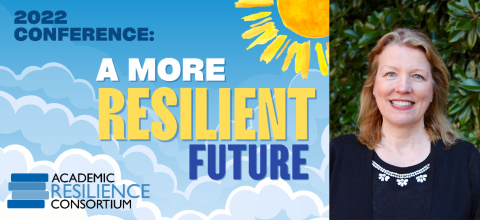FSU-Based Resilience Conference Emphasizes Student Resilience and Success

Researchers, university administrators, staff and faculty from around the world converged at Florida State University, on October 25th and 26th with one word on their mind: resilience. The FSU College of Social Work hosted the Academic Resilience Consortium (ARC) conference to connect people from various settings within higher education to increase students’ resilience and secure their current and future success.
Resilience has taken on increased importance in the wake of a global pandemic, said Karen Oehme, an FSU College of Social Work research associate and the current chair of the ARC steering committee.
“Students right now in higher education are facing unprecedented challenges and stressors,” she said. “They face perennial anxieties like finances, struggles with coursework, adjusting to college, finances and living away from home. They also worry about big, global issues and about individual personal and familial challenges. Higher education has to constantly innovate to promote student success with those struggles in mind.”
The theme of this year’s conference, A More Resilient Future, included in-person and virtual sessions at FSU’s Turnbull Conference Center. The event included speakers, breakout sessions and networking opportunities aimed at facilitating connection and communication about what colleges are doing to promote student resilience.
Oehme, who also is director of the Institute for Family Violence Studies in the College of Social Work, said ARC’s work is about collaboration.
“No one has all the answers, but there are really unique ideas out there for building student capacities for persistence, cognitive flexibility, creativity, coping skills, learning from failure and overcoming adversity – all core components of resilience,” she said. "The event is a natural fit for FSU."
“Student resilience is a concept that Provost Jim Clark has been championing for years,” she explained. “Academic resilience is very closely tied to personal resilience, so we’re always looking for ways that FSU and higher education can increase their ability to help college students.”
Florida State has become a national model for championing student resilience with the creation of the FSU Student Resilience in 2018. The award-winning project was developed by Oehme and the Institute for Family Violence Studies is an online, evidence-informed toolkit available to FSU students at strong.fsu.edu.
The institute has also developed a professional certification on trauma and resilience and recently launched in 2022 an additional resilience toolkit for FSU students.

